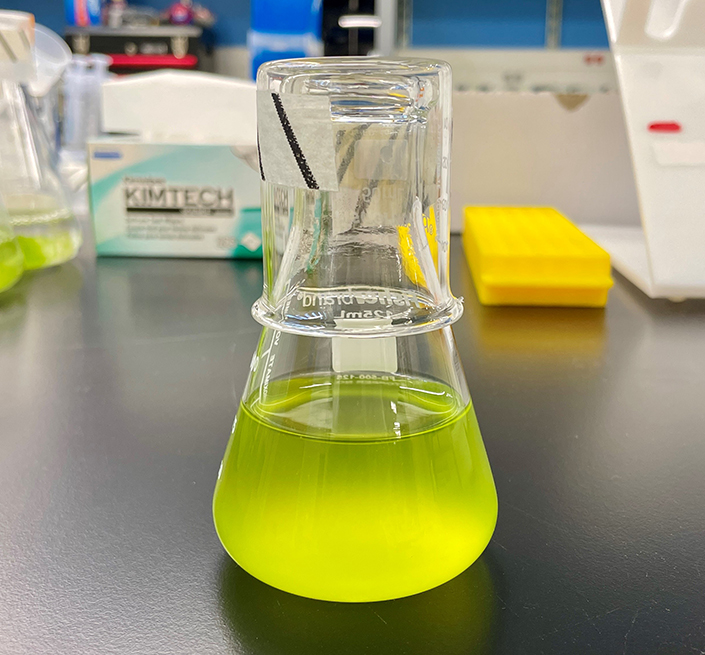Effects of Declining Diversity Documented in the World of Microbes
Story by:
Published Date
Article Content
Across the tree of life, human activities are accelerating declines in biological species diversity, from deserts to oceans to forests. But what about the microscopic world? Scientists in UC San Diego’s School of Biological Sciences recently investigated how declining biodiversity in tiny ecological systems unseen to the naked eye can carry significant consequences for the health of organisms and ecosystems.
Postdoctoral Scholar Jonathan Dickey and recent master’s graduate Nikki Mercer from Assistant Professor Sara Jackrel’s laboratory studied the implications of declining diversity within microbiomes — communities of microorganisms, such as bacteria, which can form tight associations with their hosts, such as plants and animals. Recent studies in microbial ecology have found that microbiomes can play a key role in regulating host health, leading researchers to believe that as our world changes it is imperative to understand the implications of biodiversity loss within the host microbiome.
Dickey, Mercer and their colleagues used phytoplankton, which are microscopic, single-celled plant-like organisms, and their external microbiomes as a tractable model system. By manipulating host-associated microbiome diversity into three levels (low, medium and high), they measured the effects of microbiome diversity on host growth, persistence and host-facilitated nutrient cycling. Their study compared these effects of microbiome diversity against the effects of elevated temperature and altered nutrient availability, which are two other factors that are being affected by human activities that can also cause stress to host organisms.
The results showed that drops in microbiome diversity result in effects that cut across many levels of biological organization, from changes to host physiology to community dynamics and nutrient cycling effects.
The study, “Biodiversity within phytoplankton-associated microbiomes regulates host physiology, host community ecology, and nutrient cycling,” was published on January 28, 2025 in the journal mSystems. In addition to Dickey, Mercer and Jackrel, the authors included BioSci PhD student Mirte Kuijpers and Ruben Props. This work is part of a broader research program in which the Jackrel Lab is proving that phytoplankton, a simple microorganism that allows for precise manipulation, can be a valuable system for studying host-associated microbiomes. Analyzing host-microbiome interactions are important for helping scientists understand many areas such as human skin and gut health. The project was funded by the National Institutes of Health’s National Institute of General Medical Sciences (R35GM142938).

Share This:
Stay in the Know
Keep up with all the latest from UC San Diego. Subscribe to the newsletter today.



